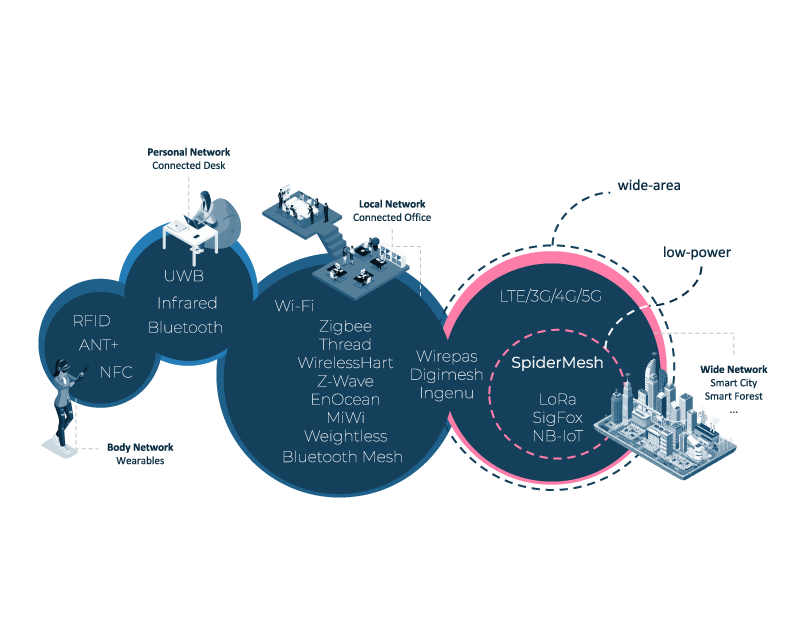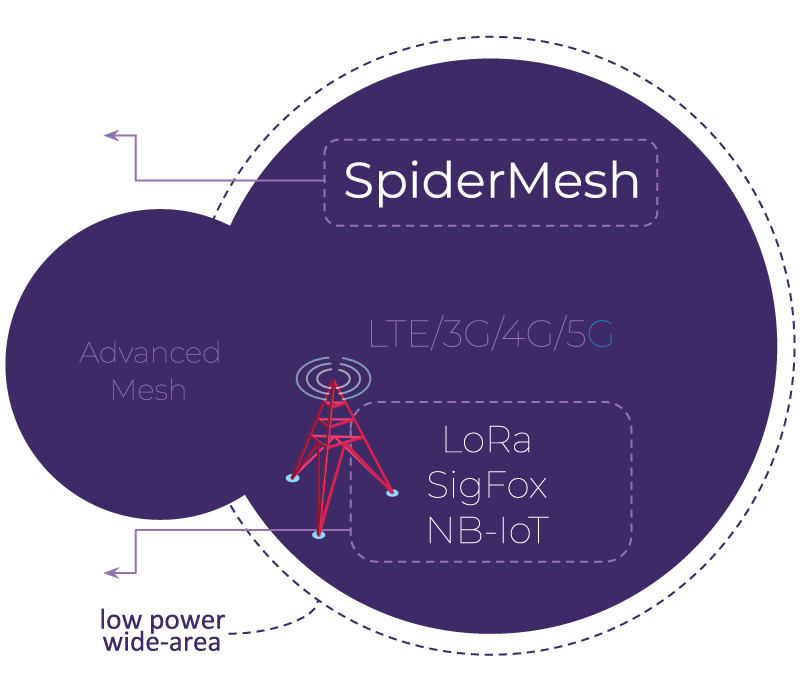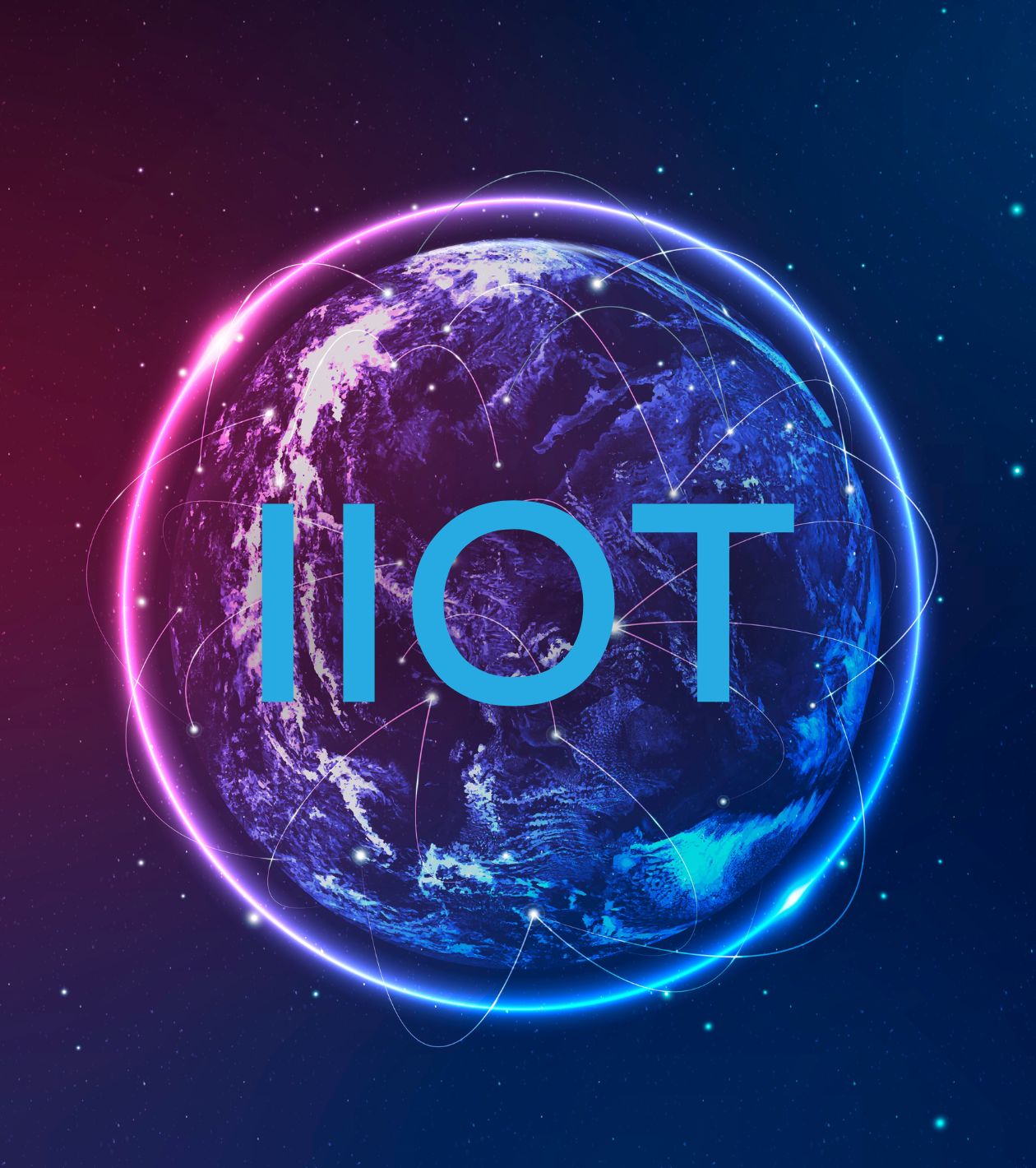Smartrek innovation at the heart of the IoT
The Internet of Things (IoT) describes the network of physical objects. The connection of objects and/or sensors that enable the collection and exchange of data.
Networking of devices is not a new concept, nor are LPWAN technologies, both of which were introduced a decade ago. Technological advancements have enabled and facilitated the explosive expansion of IoT and IIOT (Industrial Internet of Things) technologies.
Wireless communications networks vary and each have their specialization and best use case.

How many protocols are there?
There are many protocols. And it’s not surprising that we all use one or more of these protocols on a daily basis; this ranges from portable devices to the laptop on your desk.
Each and every single wireless communication protocol serves its designed and specific purpose.

Smart Metering
Smart meters that monitor and record consumption of electric energy, water or gas and then communicates the information. Providing real time insight, control and information to the utility user.
Smart Forest
Applying smart technology in order to detect environmental changes and detect potential dangers, such as forest fires.
Mining
The mining industry is extremely hazardous and dangerous, with risks ranging from physical structure integrity, poor ventilation and/or equipment failure. Additionally, monitoring and reporting requirements, as well as O&M enhancements can all benefit with the use of wireless technology.
Smart Lighting
A lighting technology designed for energy efficiency. This can include high–efficiency fixtures and automated controls that make adjustments based on occupancy or daylight.
Smart Cities
A city that incorporates information and communication technologies (ICT) to enhance the quality and performance of urban services such as energy, transportation and utilities in order to reduce resource consumption, wastage and overall costs.
Precision Agriculture
Simplify and enable accurate insights within your farming operation. Whether it be crops or raising livestock, manage your farm even more efficiently.
Why is SpiderMesh The Best IoT Wireless Technology?

It all depends on the needs and scale of your project.
SpiderMesh works perfectly in any medium to large-size network applications. Furthermore, it stands out from other protocols when working in challenging radio frequency environments. Obstacles such as trees, buildings, concrete, or rock do not interfere with the communication or the data received, allowing for low-power consumption technology even for large-scale deployments.
Furthermore, if your project has the potential to scale up, wireless mesh-based technology means that your devices are extremely easy to set up and can be easily moved from one location to another.
Is Mesh wireless technology the best option for me ?
As previously mentioned, if your IoT project has many obstacles, mesh might be the best option for you. Why? Because the traditional star network system relies on a direct line of sight. If your node is too far from this access point, the data may not reach its final destination.
What is the difference between SpiderMesh and other mesh networks ?
Traditional mesh networks are focused on self-configuration, self-healing and do not require a direct line of sight. The lack of scalability and the amount of energy needed to cover a large area were important issues that we decided to solve by making an ideal mesh network.
With SpiderMesh, data is synchronized at the bit level (rather than at the packet level), which eliminates the typical problems of packet collision (as in standard mesh technologies). Unlike other wireless mesh, SpiderMesh was built from the ground up and offers a predictable, deterministic flow of information. To date, it is the only LPWAMN (low-power wide-area mesh network).
Key factors:
Availability of the communication link
- Security
- Scalability
Connectivity to desired devices
- Hazardous location rating
- Power options to meet desired publication period
- Ease of use
- Integration with control systems
- Stranded investment risk
